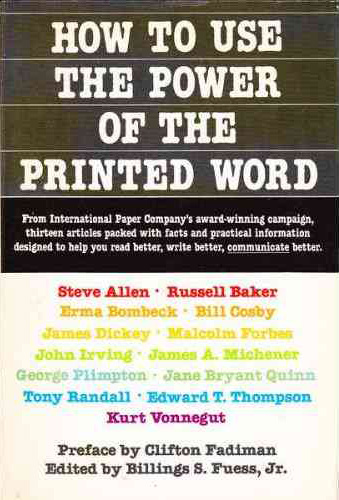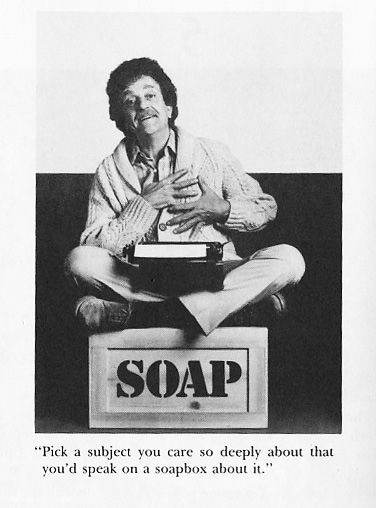How to Write with Style: Kurt Vonnegut’s 8 Keys to the Power of the Written Word | Brain Pickings.
by Maria Popova
“The most damning revelation you can make about yourself is that you do not know what is interesting and what is not.”

Kurt Vonnegut has given us some of the most timeless advice on the art and craft of writing — from his 8 rules for a great story to his insights on the shapes of stories to his formidable daily routine. But hardly anything examines the subject with a more potent blend of practical advice and heart than Vonnegut’s 1985 essay “How to Write with Style,” published in the wonderful anthology How to Use the Power of the Printed Word (UK; public library).
Vonnegut begins with an admonition against the impersonal sterility of journalistic reporting — something particularly important amidst contemporary debates about how personal the writerly persona should be — and a meditation on the single most important element of style:
Newspaper reporters and technical writers are trained to reveal almost nothing about themselves in their writing. This makes them freaks in the world of writers, since almost all of the other ink-stained wretches in that world reveal a lot about themselves to readers. We call these revelations, accidental and intentional, elements of style.
These revelations tell us as readers what sort of person it is with whom we are spending time. Does the writer sound ignorant or informed, stupid or bright, crooked or honest, humorless or playful–? And on and on.
Why should you examine your writing style with the idea of improving it? Do so as a mark of respect for your readers, whatever you’re writing. If you scribble your thoughts any which way, your reader will surely feel that you care nothing about them. They will mark you down as an ego maniac or a chowderhead — or, worse, they will stop reading you.
The most damning revelation you can make about yourself is that you do not know what is interesting and what is not. Don’t you yourself like or dislike writers mainly for what they choose to show or make you think about? Did you ever admire an empty-headed writer for his or her mastery of the language? No.
So your own winning style must begin with ideas in your head.


